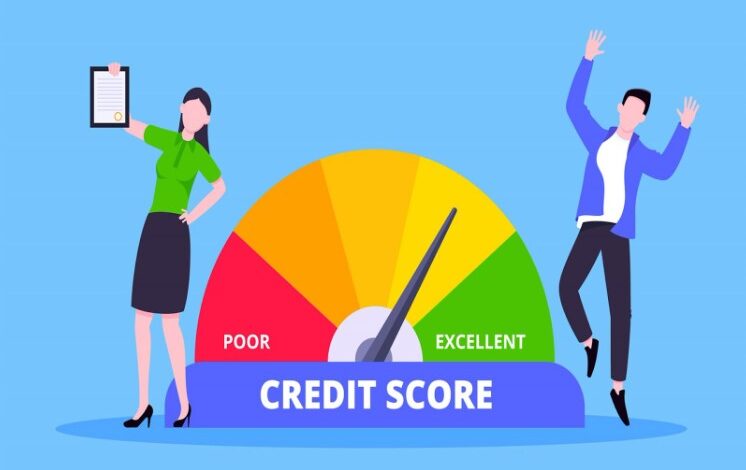How Quick Loans for Bad Credit Impact Your Financial Health

Struggling with poor credit but need immediate funds? Quick loans for bad credit can provide relief, but they come with their own set of challenges. Discover how these loans affect your financial health and what you should consider before applying.
Financial emergencies can arise unexpectedly in today’s fast-paced world, leaving many individuals needing quick cash. Finding a solution can take much work for those with bad credit. Quick loans for bad credit offer a potential lifeline, but they also carry risks that can impact your financial health. This article explores how these loans can affect you, the pros and cons, and what you should know before taking the plunge.
Exploring Quick Loans for Bad Credit
Quick loans for bad credit are short-term financial solutions designed to provide fast access to funds for individuals with less-than-perfect credit scores. Unlike traditional loans, which often require thorough credit checks and lengthy approval processes, quick loans focus on providing immediate assistance with minimal qualification requirements. These loans typically come with higher interest rates and fees due to the perceived risk by lenders. Understanding the terms and conditions before committing to such a loan is essential, as they can significantly impact your financial situation.
The Short-Term Benefits of Quick Loans
One of the main advantages of quick loans bad credit is their speed and accessibility. These loans can provide immediate relief when faced with an urgent financial need, such as medical expenses or unexpected repairs. They often come with a straightforward application process and fast approval times, which can be a lifesaver in emergencies. Additionally, some lenders may not require a detailed credit history, making it easier for individuals with poor credit scores to obtain the necessary funds. However, while these benefits appeal, weighing them against potential long-term drawbacks is crucial.
Read also: How Small Loans Can Help in Emergency Situations
The Financial Risks Associated with High-Interest Rates
Quick loans for bad credit often come with significantly higher interest rates than traditional ones. It is due to lenders perceiving borrowers with poor credit as higher-risk candidates. While immediate access to funds can be beneficial, the high interest rates can lead to substantial repayment amounts over time. If not managed carefully, this can result in a cycle of debt, where borrowers struggle to make payments and end up paying much more than the original loan amount. It’s essential to calculate the total cost of the loan, including interest and fees, before committing.
How Quick Loans Can Affect Your Budget and Financial Planning
Integrating a quick loan into your budget requires careful planning. The additional debt can strain your monthly finances, especially if the loan comes with high payments or fees. Adjusting your budget to account for the new loan payments is essential for effectively managing this impact. It might involve cutting back on discretionary spending or increasing your income. Please do so to avoid financial instability and difficulty meeting other financial obligations. A thorough budget review and planning can mitigate these risks and ensure the loan fits your monetary strategy.
The Role of Personal Finance Management in Utilising Quick Loans
Effective personal finance management is crucial when using quick loans for bad credit. Since these loans can come with steep interest rates and fees, it’s essential to have a clear strategy for managing the repayment. It involves creating a detailed budget that includes the loan payments and making adjustments to accommodate them. Regularly tracking your spending and income can help you stay on top of your finances and avoid falling into a cycle of debt. Additionally, setting financial goals and monitoring your progress can motivate you to stay disciplined with your loan repayments and overall financial management.
The Impact on Your Credit Score
Taking out quick loans bad credit can have a mixed impact on your credit score. On the one hand, successfully repaying the loan on time can help improve your credit score by demonstrating responsible credit behaviour. On the other hand, missing payments or defaulting on the loan can further damage your credit score, making securing favourable terms for future credit needs even more challenging. Lenders may also report your payment history to credit bureaus, which means that your financial behaviour with this loan can directly influence your credit rating.
Alternatives to Quick Loans for Bad Credit
Before opting for a quick loan, consider exploring alternative options that offer more favourable terms. For instance, personal loans from credit unions or community banks may provide better interest rates and repayment terms, even for those with poor credit. Additionally, negotiating with creditors or seeking assistance from non-profit credit counselling services can offer solutions without the high costs associated with quick loans. Emergency funds, family support, or part-time work can also be viable alternatives. Evaluating all available options can help you find a better solution for your financial health.
Final Thoughts
Quick loans for bad credit can provide immediate financial relief but come with significant risks and costs. Before committing to such loans, understand the implications of high interest rates, the potential impacts on your credit score, and the strain on your budget. By carefully evaluating your options and considering alternatives, you can make more informed decisions that better support your long-term financial health. Remember, while quick loans can be a temporary fix, a comprehensive approach to managing your finances and improving your credit can lead to more sustainable solutions in the future.




